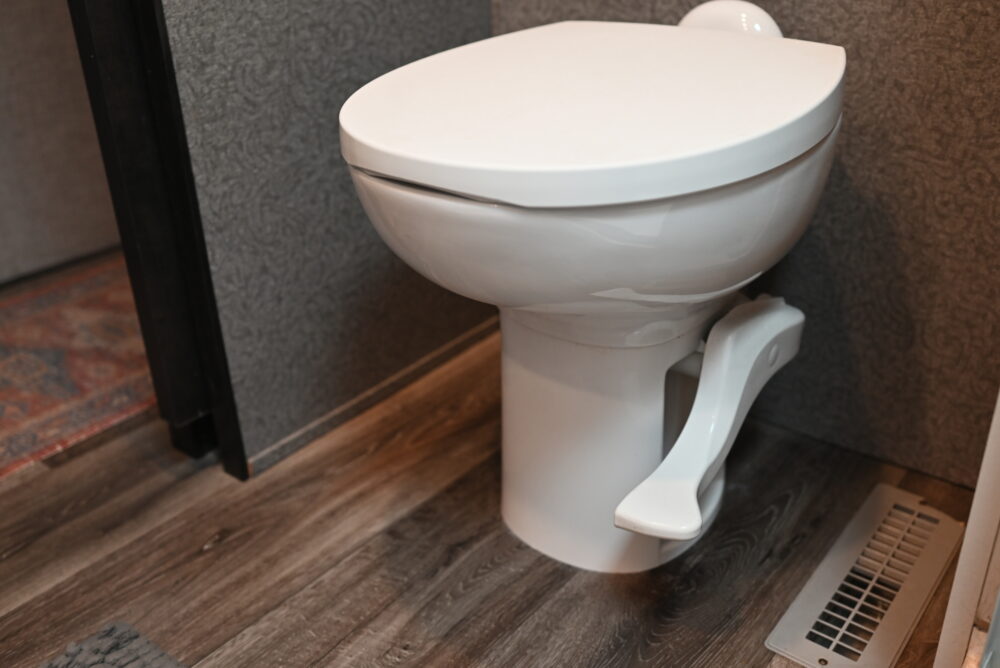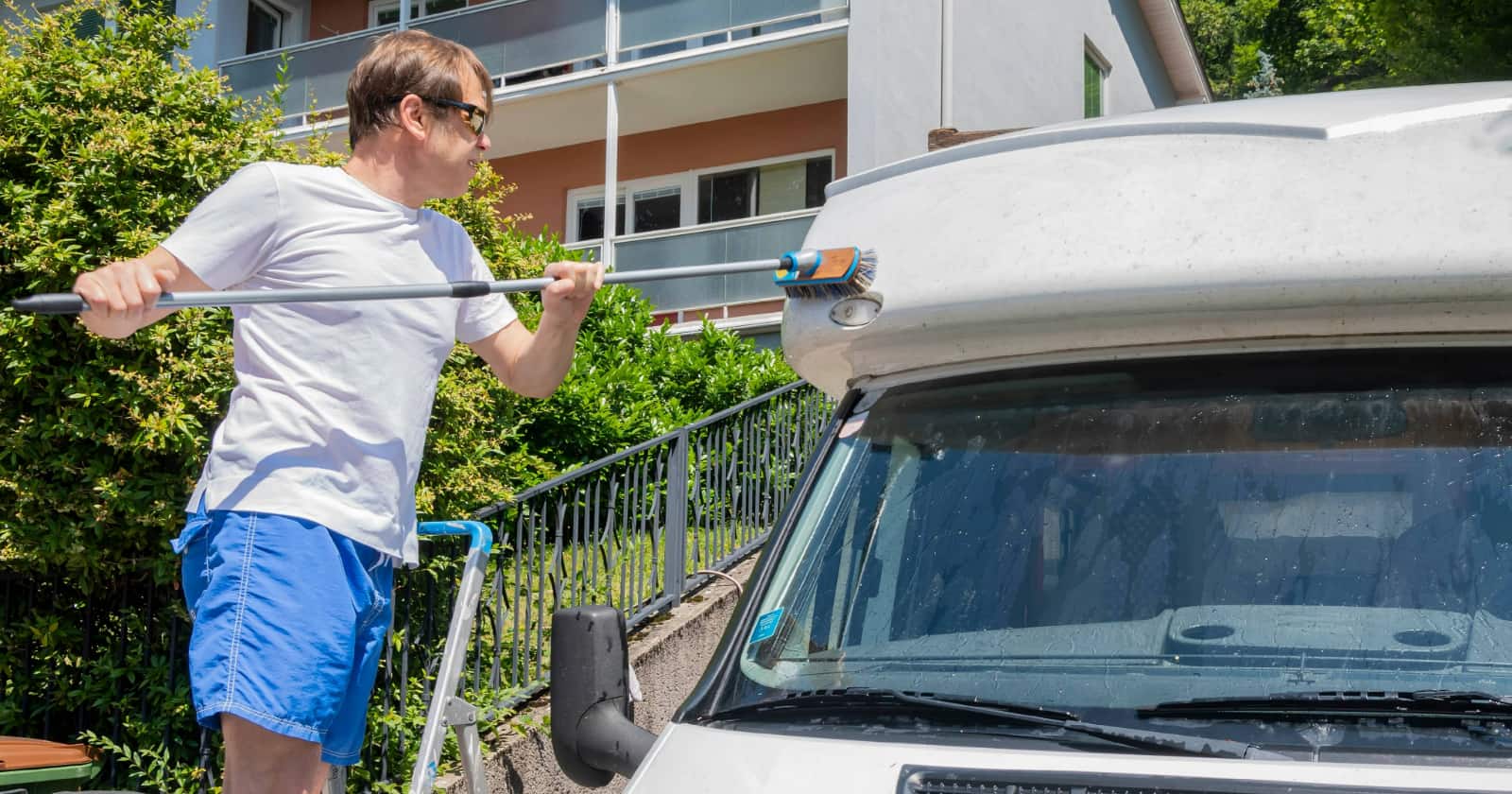 Source: Shutterstock
Source: ShutterstockWhen Your RV Smells Like Sewer & Beyond: How To Fix Bad Odors
RVing provides a great way to connect with nature while enjoying the comforts of home. But sometimes, that “home” can develop some less-than-pleasant odors. If you’ve ever stepped into your RV and been greeted by a mysterious stink, you’re not alone. Let’s dive into the common culprits behind RV odors and how you can address them quickly.
1. Sewer smell
Cause:
The most notorious of RV smells is the sewer stench, often originating from the black or gray water holding tanks. It can be caused by a variety of factors, including stagnant water, bacterial buildup, or even a malfunctioning tank vent.
Solution:
- Regularly flush your tanks: Make sure you empty and rinse your black and gray tanks regularly.
- Use tank treatments: There are numerous tank treatments available that can help break down waste and control odor.
- Check your roof vents: Ensure that the roof vents for your tanks aren’t blocked. Proper ventilation helps in reducing odors.
2. Musty, moldy smell
Cause:
This odor often indicates the presence of mold or mildew. It can arise from water leaks, high humidity, or poor ventilation.
Solution:
- Identify and repair leaks: Regularly inspect your RV for leaks. Check seals, roofs, and windows.
- Use a dehumidifier: If humidity is an issue, a compact dehumidifier can help maintain a comfortable level.
- Ventilate: Ensure proper airflow. Open windows and roof vents, especially after cooking or showering.
3. Rotten egg smell
Cause:
This unmistakable odor can originate from two primary sources. First, it might be an indication of an overcharged battery, leading it to release a sulfur-like aroma. Secondly, and more critically, it can be a sign of a propane gas leak.
Solution:
- Inspect your batteries: Regularly check them for damage, swelling, or other signs of malfunction. Ensure your RV’s charging system is working correctly to avoid overcharging.
- Detect propane leaks: If you suspect a propane gas leak, turn off the gas at the source, ventilate your RV by opening doors and windows, and seek professional assistance immediately. Gas leaks can pose a significant safety threat, so it’s crucial to address them promptly.
4. Propane odor
Cause:
A skunky or garlic-like smell may also indicate a propane leak, which is a serious safety concern.
Solution:
- Turn off gas and ventilate: If you suspect a leak, turn off your propane at the source and open doors and windows.
- Check for leaks: Use soapy water on gas line connections and watch for bubbles, which indicate a leak.
- Consult a professional: If you find a leak or even just suspect one, it’s essential to get it fixed immediately.
5. Refrigerator odors
Cause:
Leftovers or spilled liquids can cause unpleasant odors over time if not cleaned up.
Solution:
- Regular cleaning: Clean your RV fridge regularly, especially after trips.
- Use baking soda: Placing an open box of baking soda can help neutralize odors.
6. Stale air smell
Cause:
When your RV is closed up for extended periods, it can develop a stale or stuffy air smell.
Solution:
- Ventilate: Before starting your trip, open all windows and roof vents to let fresh air circulate.
- Use air fresheners: Opt for natural air fresheners or essential oils to freshen up the space.
7. Toilet odors
Cause:
Using the wrong kind of toilet paper or not enough water can cause odors.
Solution:
- Use RV-specific toilet paper: It breaks down faster and reduces the chance of odors.
- Maintain water seal: Always keep some water in the toilet bowl to maintain a water seal, which prevents odors from escaping.
8. Smells from vents and AC units
Cause:
Dust, mold, or even critters can get into your RV’s vents or AC units.
Solution:
- Regular cleaning: Periodically clean and inspect your vents and AC units.
- Check for pests: Ensure that there are no nests or obstructions in the vents.
Conclusion
An RV, just like any home, requires regular maintenance and care to remain a pleasant environment. By identifying the sources of common odors and addressing them promptly, you can ensure that your RV remains a comfortable sanctuary on the road. Remember, while many smells are simply unpleasant, others (like propane) can be indicative of more severe issues that require immediate attention for safety.
Track your RV maintenance
Make sure you keep track of all your RV maintenance and repairs with an online tool such as RV LIFE Maintenance. Not only can you keep all of your documents in one place, but you’ll also receive timely reminders when maintenance is due to help you avoid costly repairs and potentially serious accidents.
Image Sources
- DSC_8547: Shutterstock




Biggest prob!em is a Dometic toilet leaking internally. The 300 toilet is known for issues. Replace it with a 310 or better. We are on #5 now and it is leaking now